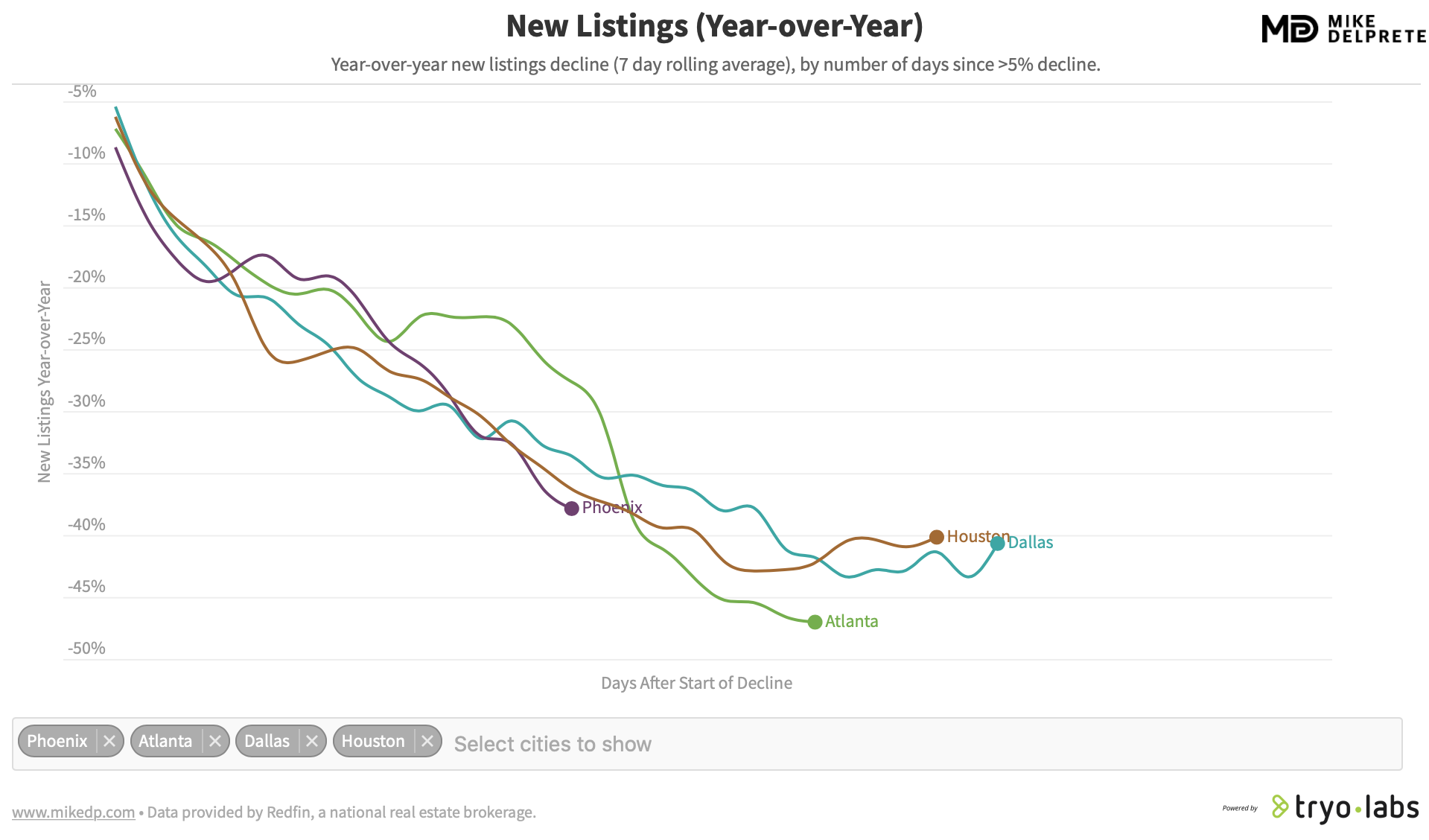Introducing the U.S. Real Estate Market Tracker
/New analysis shows a significant decline in new listing volumes across all major U.S. markets, but at vastly different rates and timing. Major metros like Los Angeles, New York City, and Chicago were affected the earliest, while Denver and Phoenix didn't experience a significant decline until 15-20 days later.
The drop in new listings varies widely between 40 and 80 percent. New York, Pennsylvania, and Michigan have been the hardest hit markets, which is a reflection of more stringent lockdown measures.
Possible recovery appears to begin after 30-35 days of decline as homeowners begin listing their homes on the market again. San Francisco, Los Angeles, and Seattle have all recovered from their lows. However, many markets are still at the bottom of the curve, and some, like Phoenix and Denver, may not yet have hit the bottom.
The speed of decline varies across markets. Listing volumes dropped twice as fast during the first ten days in New York City, Philadelphia, and San Francisco, compared to a more gradual decline in Dallas, Phoenix, and Atlanta.
Spotlight on iBuyer Markets
The country’s major iBuyers -- Opendoor, Zillow, Offerpad, and Redfin -- do most of their business in Phoenix, Atlanta, Dallas, and Houston. Like the rest of the country, those markets have seen significant drops in new listing activity, down between 40 and 50 percent.
Houston and Dallas appear to have hit bottom; both markets have been at their lows for about a week. However, Phoenix and Atlanta are too early to call. They may be at their lows, or there may be a further decline in listing volumes ahead.
All four markets have yet to see signs of recovery. New listings are still coming to market, and while a 50 percent drop in activity is significant, it’s not as severe as other national markets like New York City and Philadelphia.
Spotlight on Compass Markets
Compass operates in large metro areas, which have been the hardest hit. Compass’ biggest market and the nation’s worst hit market are the same -- New York City -- with a year-on-year drop in new listing volumes of over 80 percent.
All of Compass’ biggest markets have been hit hard, but the good news is that they all appear to have bottomed out. It’s unlikely to get worse, and it’s possible that early recovery may have begun in Washington, D.C. and San Francisco.
Compass’ revenue is a function of the number of new listings its agents secure and then sell. Given its market concentration in some of the hardest hit national markets, it appears likely that Compass will see a disproportionately higher revenue hit than other national brokerages.
The Real Estate Market Tracker
These charts are all from a new interactive tool that I’ve launched, the Real Estate Market Tracker. Thanks to my friends at Tryolabs for help developing it, and to Redfin for access to national market data. Give it a try and let me know what you think!













